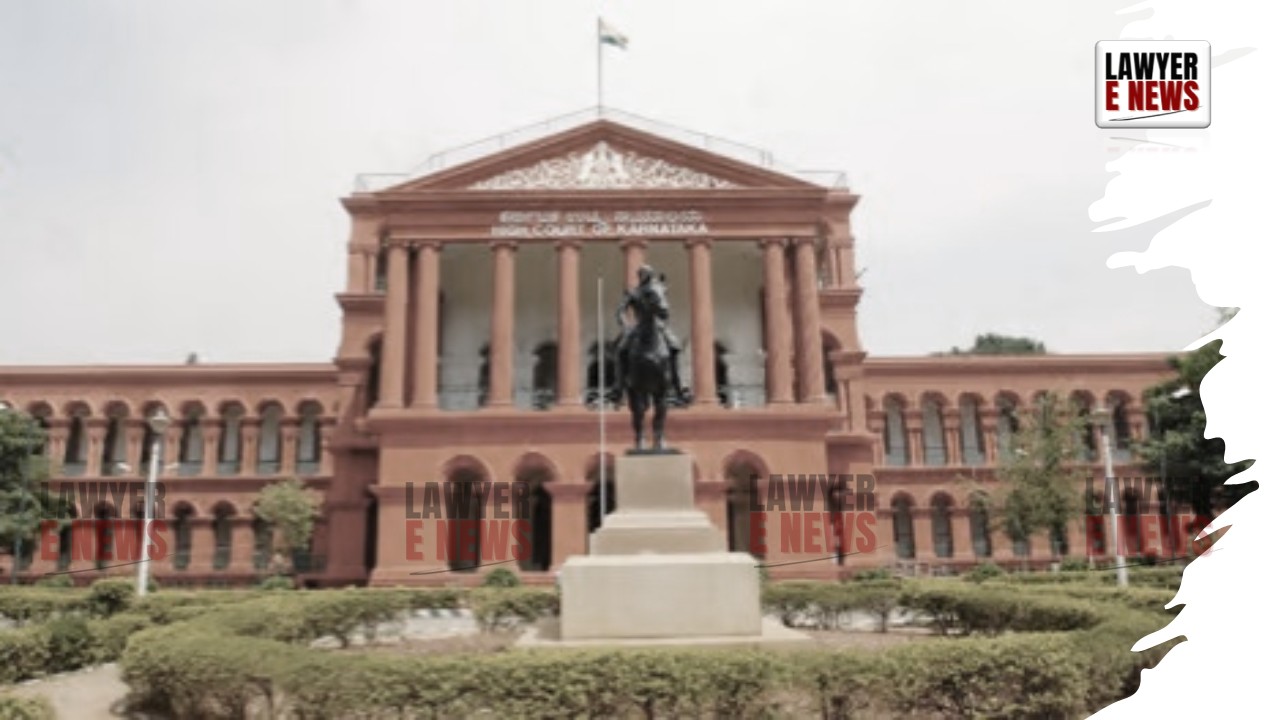-
by Admin
16 February 2026 1:47 PM



Passage of Time Does Not Exempt a Will from Legal Formalities; Courts Must Ensure Proper Proof – In a significant judgment Karnataka High Court ruled that a Will cannot be presumed valid merely because it is old or undisputed and must be proved in accordance with Sections 63 of the Indian Succession Act and 68 of the Indian Evidence Act. The Court set aside a trial court decree that granted ownership and possession of a disputed property based on an unproven Will and remanded the case for fresh consideration, directing the trial court to complete the proceedings within four months.
"A Will cannot be accepted at face value without legal proof of its execution and attestation. The law mandates strict compliance, and courts cannot overlook essential formalities even when the opposite party does not explicitly challenge the document," the High Court ruled while allowing the appeal filed by the legal heirs of H.G. Kashinath against a decree in favor of his brother’s heirs.
The ruling reaffirms that merely relying on a document’s age or the absence of objections does not exempt it from the burden of proof required by law.
"Did the Trial Court Err in Accepting the Will Without Proper Proof? High Court Directs Reconsideration"
The dispute revolved around property bearing No. 86/132, Surveyor Street, Basavanagudi, Bangalore, which was claimed by both parties as either self-acquired or ancestral property. The plaintiff, H.G. Ashwathanarayana, asserted ownership based on a Will executed in 1936 by his grandfather, Kashi Rao.
The trial court had ruled in the plaintiff’s favor, granting him declaration of ownership, possession, and mesne profits. However, the defendants challenged the decree, arguing that the plaintiff had never proved the Will in accordance with law and that the property was joint family property rather than self-acquired.
"The trial court accepted the Will’s validity without ensuring compliance with mandatory legal procedures. No attesting witness was examined, and no alternate proof was furnished," the appellants contended, citing S.R. Srinivasa v. S. Padmavathamma (2010), where the Supreme Court ruled that merely admitting a Will’s existence does not establish its due execution and attestation.
"A Will Cannot Be Assumed Valid Without Proper Proof": High Court Reiterates Legal Requirements
The High Court examined the trial court’s reliance on the 1936 Will and found that no attesting witness had been examined, nor had any secondary evidence been presented to authenticate the document.
"A Will must be proved through legally prescribed methods, even if no one objects to it. The presumption under Section 90 of the Evidence Act does not apply to Wills," the Court observed.
The Court referred to Ramesh Verma v. Lajesh Saxena (2017), where the Supreme Court emphasized that Wills must be proved by calling at least one attesting witness, and if none are available, secondary evidence must be presented under Section 69 of the Evidence Act.
The plaintiff had relied on a certified copy of the Will, claiming that the original was handed over to a third party during a property transaction. The Court, however, ruled that this did not constitute valid proof, as no attempt had been made to establish the testator’s signature or the attesting witnesses' handwriting.
"A certified copy of a Will does not automatically prove its execution. The plaintiff must either call an attesting witness or establish secondary evidence as required by law," the Court held.
"Ownership Claim Depends on Proving the Will": High Court Remands Case for Fresh Consideration
Setting aside the trial court’s decree, the High Court remanded the case for a fresh decision solely on the issue of whether the Will had been duly proved. The trial court was directed to conclude the proceedings within four months, with both parties instructed to appear on March 25, 2025, without waiting for fresh notices.
"The trial court must determine the validity of the Will based on proper legal standards. If the Will is proved, the plaintiff is entitled to relief; if not, his claim fails," the Court stated.
The judgment ensures that no party can claim property rights based on an unverified Will and that legal safeguards for proving testamentary documents are upheld.
"Proving a Will is Not a Mere Formality; Karnataka High Court Upholds Legal Scrutiny in Testamentary Cases"
With this ruling, the Karnataka High Court has reinforced that Wills must be strictly proved in accordance with statutory requirements, regardless of their age or the absence of disputes. The Court has made it clear that:
"The law does not permit shortcuts in proving Wills. Unless a Will is established through the due legal process, no rights can be claimed under it."
By insisting on strict compliance with procedural formalities, the High Court has ensured that property disputes based on unverified Wills do not lead to erroneous judicial decisions.
Date of decision: 21 February 2025
